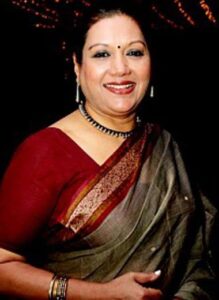Bangladeshi legendary actress Kabori dies
 Toronto, April 17: The famed actress of Bangladesh, Sarah Begum Kabori, who was on life support, passed away today at 12:20 am local time at capital Dhaka’s Sheikh Russel National Gastroliver Institute and Hospital. She was 70 and buried at Banani graveyard with due guard of honour in the evening.
Toronto, April 17: The famed actress of Bangladesh, Sarah Begum Kabori, who was on life support, passed away today at 12:20 am local time at capital Dhaka’s Sheikh Russel National Gastroliver Institute and Hospital. She was 70 and buried at Banani graveyard with due guard of honour in the evening.
Earlier both the president, Abdul Hamid and Prime Minister, Sheikh Hasina expressed their official condolences for her death. She was elected as a member of parliament from the Narayanganj-4 constituency as a politician from the current ruling Bangladesh Awami League in 2008 and served until 2014.
This national award winning actress was tested positive for Covid-19 about thirteen days ago. Initially, she was admitted to the capital’s Kurmitola General Hospital. Later, she was shifted to the ICU at Sheikh Russel National Gastroliver Institute and Hospital, as her condition deteriorated.
Born as Meena Paul in south-eastern part of the country in Chittagong, Kabori started her acting career at the age of thirteen, when she starred in Filmmaker Subhash Dutta’s ‘Sutorang’.
She acted in numerous films throughout the 1970s and 80s, notably ‘Sujon Sokhi’ and ‘Sareng Bou’ with Farooque. In the 1970s, the duo of Razzak and Kabori became a household name. She also performed with Bulbul Ahmed in ‘Devdas’, which brought her a great acclaim.
‘Titash Ekti Nadir Naam’, directed by an Indian filmmaker Ritwik Ghatak, was also praised, as was her role in Urdu film ‘Bahana’, directed by Zahir Raihan.
Her other notable films are ‘Shat Bhai Champa’, ‘Arun Varun Kiran Mala’ and ‘Lalon Fakir’, among countless others.
Throughout her legendary illustrious career, Kabori shared the screen with actors like Razzak, Alamgir, Sohel Rana, Ujjal, Wasim, Khan Ataur Rahman, Golam Mustafa, Anwar Hossain and A.T.M. Shamsuzzaman.
The actress authored a book titled ‘Sritituku Thaak’ and directed a film on women saga, Ayna, in which coincidentally her first director acted after 40 years. She also actively participated in the Liberation War, donating blood to help the injured freedom fighters. Her stance, however, put her at risk, for which she had to flee and take refuge in neighboring India. There she met many prominent writers and directors, and even worked on a film called ‘Joy Bangladesh’ in Mumbai. At death, Kabori left her five sons.


